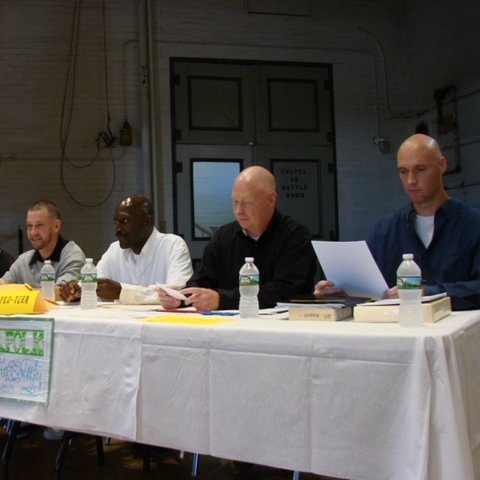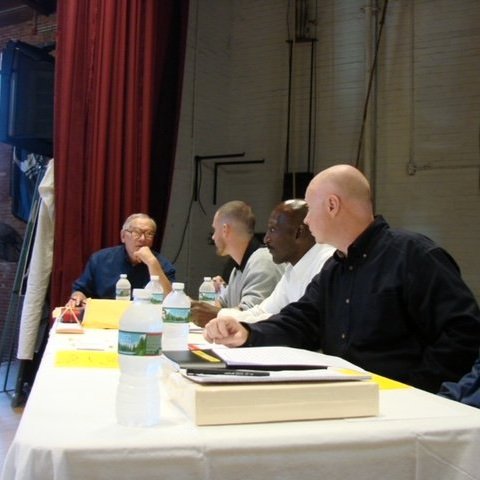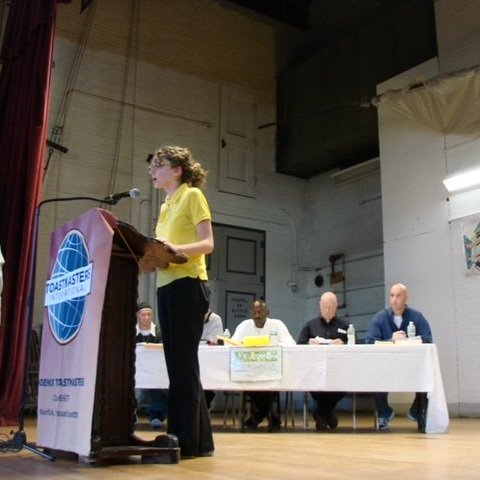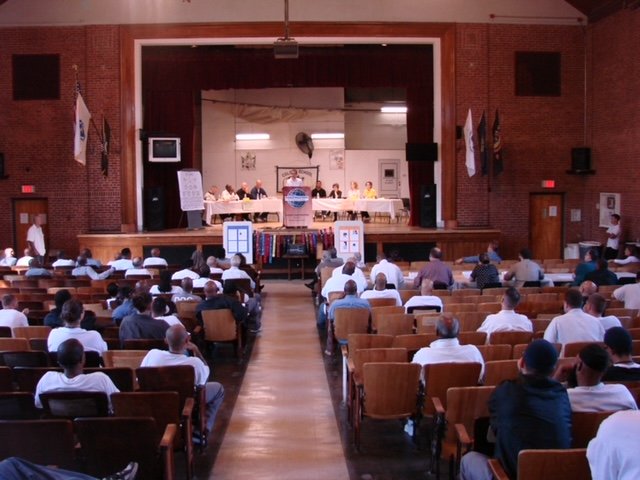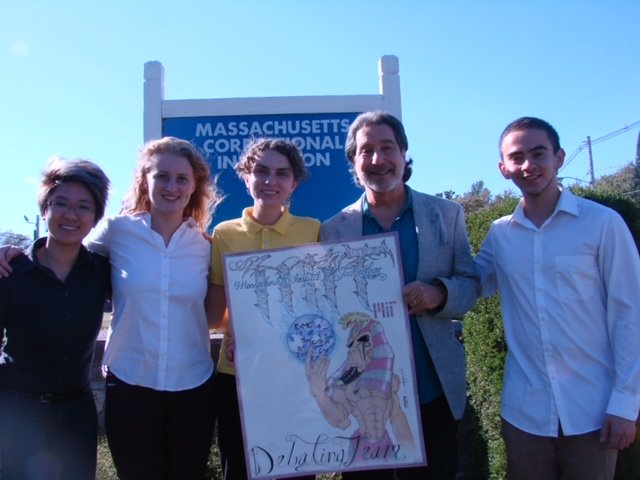Special Projects
Using Emerging Technology to advance social justice
Augmented Reality Mural
The House of Correction Mural Project is a collaboration between The Suffolk County Sheriff’s Department and several groups at MIT including Music and Theater Arts, The Borderline Mural Project, Arts@MIT, and TEJI.
The project was initiated and produced by teaching artist Peggy Rambach and former South Bay House of Correction Director of Women’s Programing Christina Ruccio, with the support of Sheriff Steven W. Tompkins and Superintendent Yolanda Smith. The project was led by Sara Brown, Senior Lecturer at MIT Theater Arts. Sam Magee, MIT Manager of Student Programs for the Arts, and Carole Cafferty, Co-Director of TEJI, coordinated organization and student engagement of students from The MIT Borderline Mural Project in the painting and augmented reality development for the mural.
Funding for this project was provided by the MIT Office of the Vice Chancellor and The Council for the Arts at MIT.
Check out the House of Correction Mural Project in the News.
We, The Unbound, the completed augmented reality mural at South Bay House of Correction.
PKG Public Service Center Spring break
PKG Criminal Justice Immersion Program
In partnership with the Priscilla King Gray (PKG) Public Service Center, this week-long spring break program connects MIT undergraduate students to complex social issues and the practitioners addressing them. It creates an opportunity for students to explore the context around these topics and learn how they can better collaborate on these efforts in the future. In this program, teams of MIT students are paired with community organizations and students learn firsthand about complex social issues impacting communities while learning the work that is being done to address those challenges.
Participating students get to:
Explore Boston’s criminal justice system from multiple perspectives.
Speak with individuals involved in the system, including formerly incarcerated individuals and professionals in the field.
Spend the week walking through the process from pre-adjudication through re-entry.
Juvenile diversion and enrichment program
Summer of Hope
Sponsored by the Mayor’s Office of the City of Boston, the Summer of Hope program engages system-involved youth in college-level academic discourse. In doing so, Summer of Hope exposes at-risk young people to academic pathways beyond high school. This program is a partnership between a variety of Boston-area universities, each of which hosts the participating youth on its campus for one week during the summer. The tight-knit group of students travel to each campus and participate in all activities together, building a strong mutual support system.
During MIT’s week of the program, TEJI’s staff and tutors work diligently with the participating youth to build higher-order thinking skills and to foster the ability to see beyond the limitations placed upon them. Students participate in an interactive Street Ethics minicourse led by TEJI Co-Director Lee Perlman, and have experiential design engineering learning opportunities at the MIT Edgerton Center.
Academic Debate About the opioid epidemic
MIT vs. MCI-Norfolk Debate
In 2017, TEJI sponsored and organized a debate between the MIT Debate Team and the Norfolk Debating Society, a team of incarcerated individuals from Massachusetts Correctional Institution — Norfolk. The debate centered around the following resolution: “pharmaceutical companies should be held criminally responsible for their role as contributors to America’s current opioid crisis.” The Norfolk team was assigned the position of supporting the stance, and the MIT team the position of opposing the stance.
As recounted in an MIT Tech article, the Norfolk team pointed out that street level drug dealers can be prosecuted for homicide, but pharmaceutical companies currently cannot: “No wonder we’re losing the war on drugs — we’re aiming at the wrong targets.” The MIT team mentioned possible benefits of opioid development, including pain relief and pharmaceutical innovation. MIT’s team ultimately won by a few points due to a technicality: one of the Norfolk speakers went overtime.
Photos by Natasha Haverty, journalist at National Public Radio.












